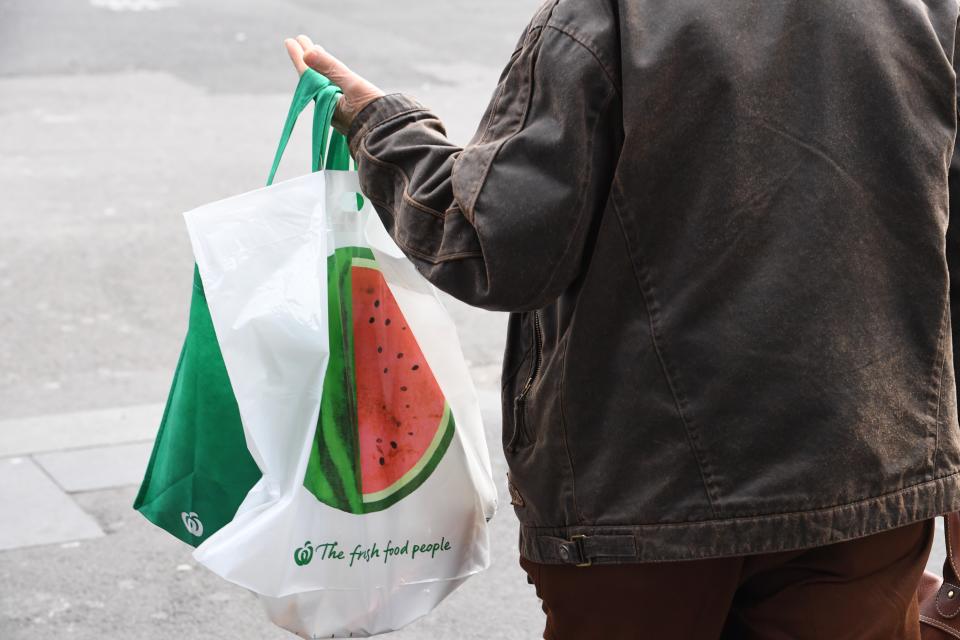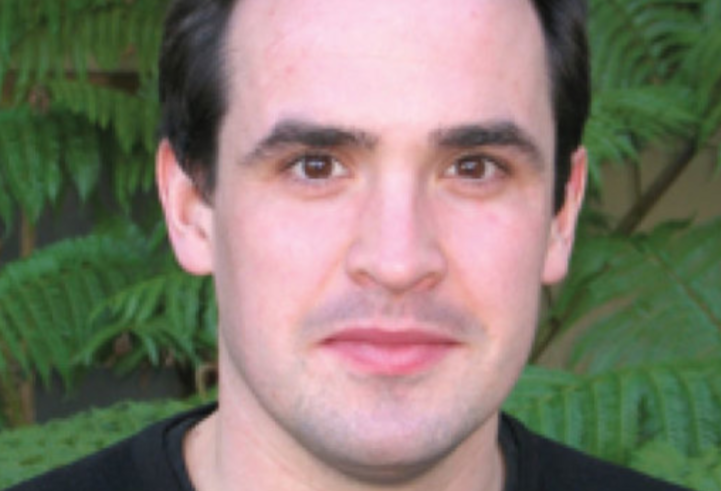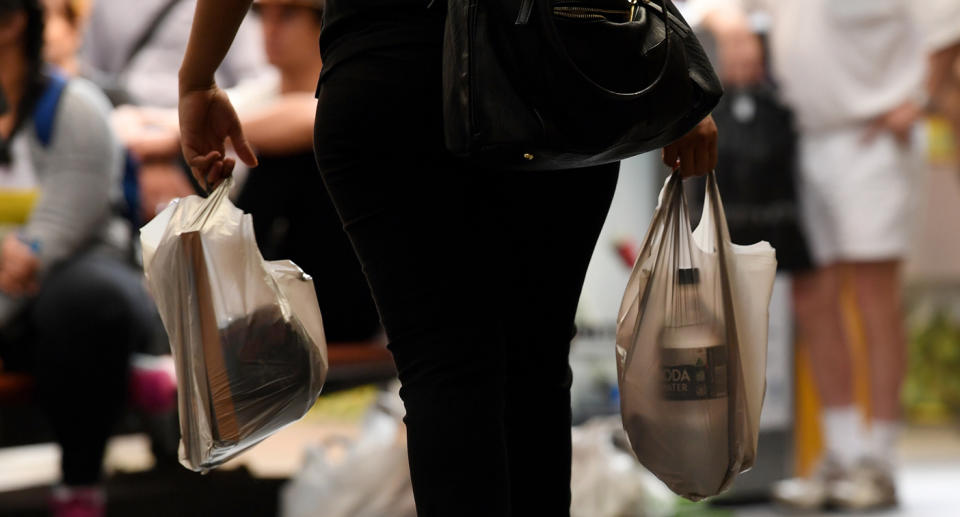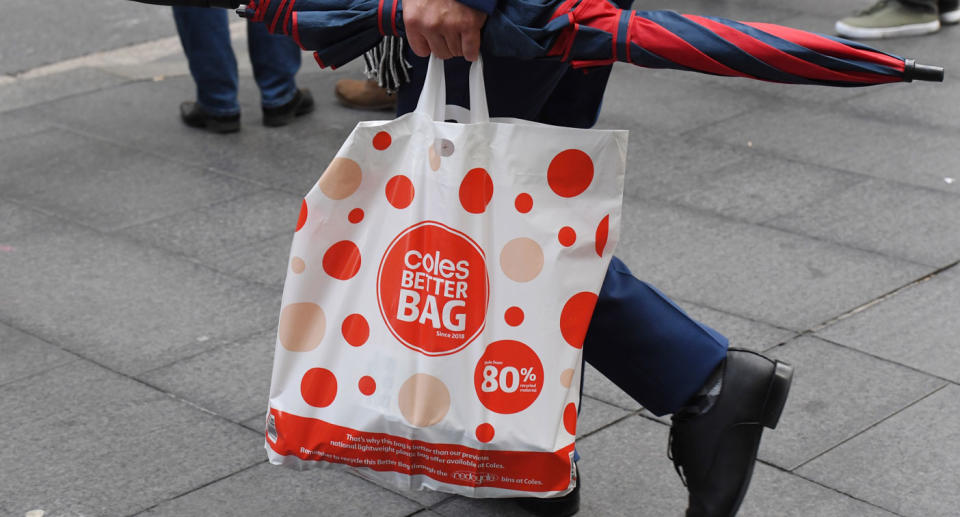No proof that reusable bags are better for environment, expert reveals
There is not enough proof to know whether reusable bags are actually better for the environment than single-use plastic bags, an expert says.
Lightweight plastic bags have been banned in all states in Australia except NSW and Victoria, with Victoria planning to implement a state-wide ban some time this year.
Coles and Woolworths have removed single-use plastic bags from all their stores across Australia, in favour of reusable, heavier plastic bags.
But senior research associate from UNSW’s School of Biological Earth and Environmental Science, Mark Anthony Browne, told Yahoo7 there were still many unanswered questions when it came to banning single-use plastic bags and the scientific reserach had not yet been done to solve the problems of plastics in the environment.

Dr Browne said there were two problems with single-use plastic bags – environmental impact and waste management.
“The environmental issue can cause ecological impacts and can change the numbers of animals and plants in certain areas,” he said.
“The other problem is waste management. The government allows manufacturers to produce plastic items that then become waste at the end of its useful life and the taxpayer has to fund programs to deal with waste.”
Dr Browne said we didn’t yet know whether reusable bags were the answer to solving these issues.
“We don’t know if they’re better and that’s the problem,” he said.
“The issue is whether the alternatives people are going for are going to be better.”

Dr Browne said no work had been done by scientists before the plastic bag ban to determine how many single-use plastic bags were affecting the environment. He said it would now be difficult to research whether the ban was working, because there was no data from before the ban.
“The government rolled out the initiative without doing research before,” he said.
Since the single-use plastic bag ban, people are going for alternatives like taking their own bag, buying heavier plastic bags or using a box.
“For each of those scenarios we need to understand the likely emissions and impacts. We need scientists to go and look at that but scientists have been excluded from the conversation so it is impossible to find an answer. We need proper science so we know people are making the right choices,” Dr Browne said.

The retails chains that haven’t banned single-use plastic bags
‘Train your staff!’: Customers say Coles and Woolies staff are overpacking reusable bags
He claimed nobody knew how long it took for single-use plastic bags and reusable bags to biodegrade, and there had only been estimates about how long a bag would last in the environment. He said this was because experiments had only been done in the lab.
“If we want to know how long plastic bags last in Sydney, we need to do experiments in Sydney Harbour and look at the rate it takes to break down,” he said.
“If we want to find out how long they take to break down in landfill, we need to put them in landfill.
“It can be a different result in different areas depending on weather conditions and consumer habits.
“Even things like paper you’re able to dig up decades later and still read the actual paper itself. It’s very dependent on the environment which these things have been placed in so you can’t infer estimates based on lab trials. Many labs aren’t set up to be realistic to the environment.”

Dr Browne didn’t rubbish the idea of the single-use plastic bag ban completely, and said something needed to be done. But he was concerned the initiative was put in place without proper research.
“Why didn’t the government come to us beforehand and say, ‘we’re putting this into place, please can you come up with the problem definition and come up with a study to determine how effective the strategy is going to be’,” he said.
“Then we’d have concrete evidence of what the problems are and then know if we are solving it.”
Federal Minister for Environment Josh Frydenberg said globally 13 million tonnes of plastic made its way into oceans each year, entangling or being eaten by marine life such as turtles, sea birds and whales.
“Our Marine Debris Threat Abatement Plan identifies the research, management and other actions we need to take to reduce the impact of debris, including plastics, on vertebrate marine life,” he said.
“The plan confirms how debris ingestion and entanglement kills and injures marine life, with fishing gear (ropes and nets made from synthetic fibres), balloons and plastic bags posing the biggest entanglement threat to marine fauna.”


